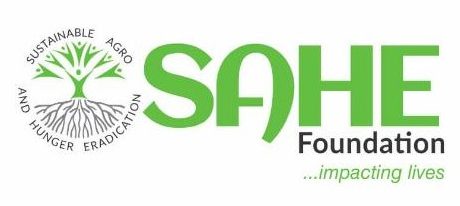ECONOMIC GROWTH IN A ‘HUNGER HOTSPOT’
Nigeria has been listed by The Food and Agricultural Organisation (FAO) and the World Food Programme (WFP) among 20 ‘Hunger Hotspots’ as they jointly reported that acute food insecurity would likely deteriorate further in Nigeria as 2022 progresses, and advocated urgent targeted humanitarian action.
Given, foreign aid is an important means of finance for governments of developing countries to drive economic growth for the eradication of hunger, but the burning discussion is whether too much inflow of aid to developing countries is beneficial or harmful to their economy, and whether institutional quality and economic freedom matter in aid–growth relationship.
Most probably, the only agenda that countries across the globe share in common is that of achieving higher rate of economic growth. However, there might be differences in ways of getting there. Apart from different political ideologies, there are different economic theories, backed by empirical evidence, as to what constitutes source of economic growth. Capital that can be internally generated and/or obtained from outside sources can be considered as a source of economic growth and the importance of capital in economic growth is undisputed, though conditions necessary for its effectiveness could be cited.
Low-income African countries finance simple infrastructural developments with aid. Where foreign capital is the last resort in face of commitments to reduce the alarming poverty and meager opportunities to mobilize resources from internal sources, the question resurfaces: Does foreign aid and capital thus obtained by any means available promote economic growth as anticipated or are there chances of failure.
Had aid and funds from multilateral creditors been panacea for development problems of developing countries, poverty would not have been an agenda on international summits for the past 70 years. This makes it rational to revisit the role of foreign capital in the economy of recipient country.
It has been recognized that foreign capital per se is not adequate in influencing economic growth positively. In order to channel foreign capital toward economic growth, the absorptive capacity of the recipient country is an important issue. In the same vein, studies confirm that institutional quality and economic freedom matter in aid–growth relationship, promoting the positive effect of aid on economic growth.
Nigeria as a developing country should not receive huge amount of aid from donors, keep net inflow of aid toward them at lower level (under 10% of her GDP), improve her institutional quality and ease government control over political and economic environment to reap a positive and sustainable benefit of this short-term solution to the hunger crisis in the country.
[DEVELOPMENT ECONOMICS
The relationship between aid and economic growth of developing countries: Does institutional quality and economic freedom matter?
Chala Amante AbateORCID Icon |
Cogent Economics & Finance
Volume 10, 2022 – Issue 1
Open access]

